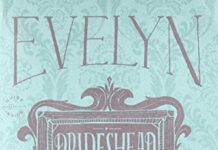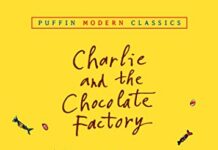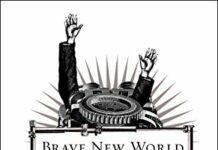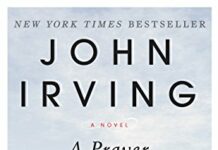
Ebook Info
- Published: 2004
- Number of pages: 1024 pages
- Format: Epub
- File Size: 0.84 MB
- Authors: Charles Dickens
Description
David Copperfield is the story of a young man’s adventures on his journey from an unhappy and impoverished childhood to the discovery of his vocation as a successful novelist. Among the gloriously vivid cast of characters he encounters are his tyrannical stepfather, Mr Murdstone; his brilliant, but ultimately unworthy school-friend James Steerforth; his formidable aunt, Betsey Trotwood; the eternally humble, yet treacherous Uriah Heep; frivolous, enchanting Dora Spenlow; and the magnificently impecunious Wilkins Micawber, one of literature’s great comic creations. In David Copperfield – the novel he described as his ‘favourite child’ – Dickens drew revealingly on his own experiences to create one of the most exuberant and enduringly popular works, filled with tragedy and comedy in equal measure. This edition uses the text of the first volume publication of 1850, and includes updated suggestions for further reading, original illustrations by ‘Phiz’, a revised chronology and expanded notes. In his new introduction, Jeremy Tambling discusses the novel’s autobiographical elements, and its central themes of memory and identity.
For more than seventy years, Penguin has been the leading publisher of classic literature in the English-speaking world. With more than 1,700 titles, Penguin Classics represents a global bookshelf of the best works throughout history and across genres and disciplines. Readers trust the series to provide authoritative texts enhanced by introductions and notes by distinguished scholars and contemporary authors, as well as up-to-date translations by award-winning translators.
User’s Reviews
“The most perfect of all the Dickens novels.”–Virginia Woolf About the Author Charles Dickens was born on February 7, 1812, in Landport, Portsea, England. He died in Kent on June 9, 1870. The second of eight children of a family continually plagued by debt, the young Dickens came to know not only hunger and privation,but also the horror of the infamous debtors’ prison and the evils of child labor. A turn of fortune in the shape of a legacy brought release from the nightmare of prison and “slave” factories and afforded Dickens the opportunity of two years’ formal schooling at Wellington House Academy. He worked as an attorney’s clerk and newspaper reporter until his Sketches by Boz (1836) and The Pickwick Papers (1837) brought him the amazing and instant success that was to be his for the remainder of his life. In later years, the pressure of serial writing, editorial duties, lectures, and social commitments led to his separation from Catherine Hogarth after twenty-three years of marriage. It also hastened his death at the age of fifty-eight, when he was characteristically engaged in a multitude of work. Jeremy Tambling is Professor of Comparative Literature at the University of Hong Kong. Excerpt. © Reprinted by permission. All rights reserved. Whether I shall turn out to be the hero of my own life, or whether that station will be held by anybody else, these pages must show. To begin my life with the beginning of my life, I record that I was born (as I have been informed and believe) on a Friday, at twelve o’clock at night. It was remarked that the clock began to strike, and I began to cry, simultaneously.In consideration of the day and hour of my birth, it was declared by the nurse, and by some sage women in the neighbourhood who had taken a lively interest in me several months before there was any possibility of our becoming personally acquainted, first, that I was destined to be unlucky in life; and secondly, that I was privileged to see ghosts and spirits; both these gifts inevitably attaching, as they believed, to all unlucky infants of either gender, born towards the small hours on a Friday night.I need say nothing here on the first head, because nothing can show better than my history whether that prediction was verified or falsified by the result. On the second branch of the question, I will only remark, that unless I ran through that part of my inheritance while I was still a baby, I have not come into it yet. But I do not at all complain of having been kept out of this property; and if anybody else should be in the present enjoyment of it, he is heartily welcome to keep it.I was born with a caul, which was advertised for sale, in the newspapers, at the low price of fifteen guineas. Whether seagoing people were short of money about that time, or were short of faith and preferred cork jackets, I don’t know; all I know is, that there was but one solitary bidding, and that was from an attorney connected with the bill-broking business, who offered two pounds in cash, and the balance in sherry, but declined to be guaranteed from drowning on any higher bargain. Consequently the advertisement was withdrawn at a dead loss—for as to sherry, my poor dear mother’s own sherry was in the market then—and ten years afterwards the caul was put up in a raffle down in our part of the country, to fifty members at half a crown a head, the winner to spend five shillings. I was present myself, and I remember to have felt quite uncomfortable and confused, at a part of myself being disposed of in that way. The caul was won, I recollect, by an old lady with a hand-basket, who, very reluctantly, produced from it the stipulated five shillings, all in halfpence, and twopence halfpenny short—as it took an immense time and a great waste of arithmetic, to endeavour without any effect to prove to her. It is a fact which will be long remembered as remarkable down there, that she was never drowned, but died triumphantly in bed, at ninety-two. I have understood that it was, to the last, her proudest boast, that she never had been on the water in her life, except upon a bridge; and that over her tea (to which she was extremely partial) she, to the last, expressed her indignation at the impiety of mariners and others, who had the presumption to go ‘meandering’ about the world. It was in vain to represent to her that some conveniences, tea perhaps included, resulted from this objectionable practice. She always returned, with greater emphasis and with an instinctive knowl-edge of the strength of her objection, ‘Let us have no meandering.’Not to meander myself, at present, I will go back to my birth.I was born at Blunderstone, in Suffolk, or ‘thereby,’ as they say in Scotland. I was a posthumous child. My father’s eyes had closed upon the light of this world six months, when mine opened on it. There is something strange to me, even now, in the reflection that he never saw me; and something stranger yet in the shadowy remembrance that I have of my first childish associations with his white gravestone in the churchyard, and of the indefinable compassion I used to feel for it lying out alone there in the dark night, when our little parlour was warm and bright with fire and candle, and the doors of our house were—almost cruelly, it seemed to me sometimes—bolted and locked against it.An aunt of my father’s, and consequently a great-aunt of mine, of whom I shall have more to relate by-and-by, was the principal magnate of our family. Miss Trotwood, or Miss Betsey, as my poor mother always called her, when she sufficiently overcame her dread of this formidable personage to mention her at all (which was seldom), had been married to a husband younger than herself, who was very handsome, except in the sense of the homely adage, ‘handsome is, that handsome does’—for he was strongly suspected of having beaten Miss Betsey, and even of having once, on a disputed question of supplies, made some hasty but determined arrangements to throw her out of a two pair of stairs’ window. These evidences of an incompatibility of temper induced Miss Betsey to pay him off, and effect a separation by mutual consent. He went to India with his capital, and there, according to a wild legend in our family, he was once seen riding on an elephant, in company with a Baboon; but I think it must have been a Baboo—or a Begum. Anyhow, from India tidings of his death reached home, within ten years. How they affected my aunt, nobody knew; for immediately upon the separation she took her maiden name again, bought a cottage in a hamlet on the sea-coast a long way off, established herself there as a single woman with one servant, and was understood to live secluded, ever afterwards, in an inflexible retirement.My father had once been a favourite of hers, I believe; but she was mortally affronted by his marriage, on the ground that my mother was ‘a wax doll.’ She had never seen my mother, but she knew her to be not yet twenty. My father and Miss Betsey never met again. He was double my mother’s age when he married, and of but a delicate constitution. He died a year afterwards, and, as I have said, six months before I came into the world.This was the state of matters on the afternoon of, what I may be excused for calling, that eventful and important Friday. I can make no claim, therefore, to have known, at that time, how matters stood; or to have any remembrance, founded on the evidence of my own senses, of what follows.My mother was sitting by the fire, but poorly in health, and very low in spirits, looking at it through her tears, and desponding heavily about herself and the fatherless little stranger, who was already welcomed by some grosses of prophetic pins in a drawer upstairs, to a world not at all excited on the subject of his arrival; my mother, I say, was sitting by the fire, that bright, windy March afternoon, very timid and sad, and very doubtful of ever coming alive out of the trial that was before her, when, lifting her eyes as she dried them, to the window opposite, she saw a strange lady coming up the garden.My mother had a sure foreboding at the second glance, that it was Miss Betsey. The setting sun was glowing on the strange lady, over the garden fence, and she came walking up to the door with a fell rigidity of figure and composure of countenance that could have belonged to nobody else.When she reached the house, she gave another proof of her identity. My father had often hinted that she seldom conducted herself like any ordinary Christian; and now, instead of ringing the bell, she came and looked in at that identical window, pressing the end of her nose against the glass to that extent that my poor dear mother used to say it became perfectly flat and white in a moment.She gave my mother such a turn, that I have always been convinced I am indebted to Miss Betsey for having been born on a Friday.My mother had left her chair in her agitation, and gone behind it in the corner. Miss Betsey, looking round the room, slowly and inquiringly, began on the other side, and carried her eyes on, like a Saracen’s head in a Dutch clock, until they reached my mother. Then she made a frown and a gesture to my mother, like one who was accustomed to be obeyed, to come and open the door. My mother went.’Mrs. David Copperfield, I think,’ said Miss Betsey; the emphasis referring, perhaps, to my mother’s mourning weeds, and her condition.’Yes,’ said my mother, faintly.’Miss Trotwood,’ said the visitor. ‘You have heard of her, I dare say?’My mother answered she had had that pleasure. And she had a disagreeable consciousness of not appearing to imply that it had been an overpowering pleasure.’Now you see her,’ said Miss Betsey. My mother bent her head, and begged her to walk in.They went into the parlour my mother had come from, the fire in the best room on the other side of the passage not being lighted—not having been lighted, indeed, since my father’s funeral; and when they were both seated, and Miss Betsey said nothing, my mother, after vainly trying to restrain herself, began to cry.’Oh, tut, tut, tut!’ said Miss Betsey, in a hurry. ‘Don’t do that! Come, come!’My mother couldn’t help it notwithstanding, so she cried until she had had her cry out.’Take off your cap, child,’ said Miss Betsey, and let me see you.’My mother was too much afraid of her to refuse compliance with this odd request, if she had any disposition to do so. Therefore she did as she was told, and did it with such nervous hands that her hair (which was luxuriant and beautiful) fell all about her face.’Why, bless my heart!’ exclaimed Miss Betsey. ‘You are a very baby!’My mother was, no doubt, unusually youthful in appearance even for her years; she hung her head, as if it were her fault, poor thing, and said, sobbing, that indeed she was afraid she was but a childish widow, and would be but a childish mother if she lived. In a short pause which ensued, she had a fancy that she felt Miss Betsey touch her hair, and that with no ungentle hand; but, looking at her, in her timid hope, she found that lady sitting with the skirt of her dress tucked up, her hands folded on one knee, and her feet upon the fender, frowning at the fire.’In the name of Heaven,’ said Miss Betsey, suddenly, ‘why Rookery?”Do you mean the house, ma’m?’ asked my mother.’Why Rookery?’ said Miss Betsey. ‘Cookery would have been more to the purpose, if you had had any practical ideas of life, either of you.”The name was Mr. Copperfield’s choice,’ returned my mother. ‘When he bought the house, he liked to think that there were rooks about it.’The evening wind made such a disturbance just now, among some tall old elm-trees at the bottom of the garden, that neither my mother nor Miss Betsey could forbear glancing that way. As the elms bent to one another, like giants who were whispering secrets, and after a few seconds of such repose, fell into a violent flurry, tossing their wild arms about, as if their late confidences were really too wicked for their peace of mind, some weatherbeaten ragged old rooks’-nests burdening their higher branches, swung like wrecks upon a stormy sea. Read more
Reviews from Amazon users, collected at the time the book is getting published on UniedVRG. It can be related to shiping or paper quality instead of the book content:
⭐ One of the best books ever written. You will never forget David C! I don’t know how I missed it growing up but a book reviewer in the WSJ alluded to it and said that the main character in his book was much like David: you are sad at the end that you will never get more of him. I broke with my “best seller” policy, and love of spy novels and action books, and ordered it. I can’t wait for bedtime to get another hour of reading in of this 1000 page paperback I got fro m Amazon. yes, the start is a little slow until one becomes accustomed to the language and phrasing of the time, but by page 50 the book owns you. Dickens really rocks~!
⭐ My Grandfather introduced me to Dickens on my tenth birthday, giving me Oliver Twist and stating, (as I was a voracious reader even then) “If you haven’t read Dickens, you haven’t read.” Well… I cannot comment on that but I had read most of Dicken’s before I was twelve and in my second (or third) reading of some of his books I have just finished re-reading David Copperfield. A very large book…coming in at eight hundred odd pages in my edition (which also has the most delightful pen and ink illustrations) be ready for a long but satisfying journey into the life and times of Dickens.Dickens stated David Copperfield was his ‘favourite child’ …. he was well pleased with the result and many claim it was largely autobiographical.Yes…. I love it…although very wordy and descriptive… but not my favourite. I much prefer Great Expectations or Tale of Two Cities.However once again the reader is treated to a bevy of unforgettable characters. Apart from David Copperfield, there is his austere but warm and giving Aunt, Betsy Trotwood…. the charming and loquacious Micawber and his doting wife, the dreadful Murdstone siblings, the vile and undulating Uriah Heep and the simple but loveable character of Mr Dick. Dickens somehow manages to name his characters in such a way the name befits the character…. like the loving Peggotty… David’s childhood nurse. Long before a descriptive word was read I could picture this warm and loving woman.Sadly Charles Dickens died early in life at the age of fifty eight. Nonetheless he was incredibly prolific, and in an era where the production of a novel must have been quite a task, this in itself is remarkable. I salute Charles Dickens…. who wrote many masterpieces and is still being read almost two hundred years later and perhaps for many years to come.
⭐ Been on my bucket list for years; always overwhelmed by the sheer volume but finally took a couple of weeks to read this all-time classic, highly regarded as Dickens best and it did not disappoint. At times both moving and surprisingly witty, never dull – David Copperfield delivers on all levels. A must read and addition to your classic library.
⭐ Was brought to the book by the lovely film adaptation made in 2020. While I adored the film as a remarkable adaptation of this epic behemoth of a novel, and think that made good choices where they wandered astray of the original manuscript, the reality is that it is simply not possible to compress the nuance, intrigue, drama, and character development of this work. To truly and deeply enjoy it, you must read this book. I highly recommend the audiobook narrated in spectacular and vivid (dare I say Dickensian) detail by the inimitable Richard Armitage. It is often difficult to believe that there is but one actor reading the piece, given the various accents, tonalities, cadences, and ultimately personalities that Armitage portrays with his singular voice. The perfect choice for a Whispersync Kindle/Audible experience. Bravo.
⭐ Having recently read and enjoyed Charles Dickens’s Great Expectations, I decided to up the ante by taking on his somewhat longer and more challenging David Copperfield. Already having sampled the writing style in Great Expectations, I found it somewhat easier to get into the flow of the story, and what a story it is.Young David Copperfield is raised by his widowed mother Clara and their devoted servant Peggotty, both of whom care for and love him very much. His life rapidly changes however, with the marriage of his mother to the loathsome Mr. Murdstone and his sister Miss Murdstone, who move in and take over the household, including the care and instruction of young Davey.From this point, we are introduced to a wide variety of richly drawn characters as Davey makes his way in the world. This novel is quite simply one of the greatest works of literature ever penned, widely acclaimed to be Dickens’s finest. I found it to be fascinating, both with respect to the characters, the story and the historical underpinnings.There is really no “story” here, as the book simply follows young David from his earliest years, through adolescence and into young adulthood. Along the way, he experiences great joy, heartbreaking loss and countless adventures set against the rich and detailed backdrop of Victorian England. Such characters as Uriah Heep, Mr. and Mrs. Micawber, Steerforth, Emily, Ham, Agnes Wickfield, Dr. and Annie Strong, Dora Spenlow, Thomas Traddles, Mr. Peggotty, Miss Dartle and countless others create an indelible impression on the reader as they drift into and out of the tale.
⭐ I was always skeptical of reading Dickens, preferring the great Russian novelists, fearing Dickens too sentimental and corny. Much to my surprise, “David Copperfield” is a wonderful, engaging tale of early Victorian England. Dickens’ characters are believable, their lives – follies and virtues – all too human. I’ll be reading more of the Dickens canon in the future, with “A Tale of Two Cities” already under my belt.
⭐ I bought this for a class I was taking. The notes in the back were helpful, and the introductory material enlightening.
⭐ Hey. I never expected to enjoy this as much as I did. A great read.
⭐ Here’s some math about long novels: An 882-page book like David Copperfield can be read in two months if you have a normal life, one month if you read 30 pages every day (no weekends off), and one week if you do nothing–absolutely nothing–else. All this reading, and the caffeine you’ve probably consumed with it, produces a serious side effect: you’ve urgently got to talk to someone about what you’ve read. No one can hope to process thirty hours of Dickensian England without some help. Like the character of Agnes in David Copperfield, the Long Novel Weekend was there to listen and offer wisdom.We met Saturday morning, August 17th, at Vallambrosa retreat center, a quiet ten-acre estate in Menlo Park, just a couple of miles from Stanford Stadium. The format was perfect for the kind of discussion we described above. The larger group was divided into six, and we met three times, so two groups combined for each session. Each session was two hours. How far did we get in our six-hours of trading ideas? Thanks to good questions from the group leaders, and equally good answers from everyone, we travelled with David Copperfield from youth to maturity, experiencing Victorian England as eyewitnesses. The following three paragraphs, one for each session, are taken from this writer’s session notes. They represent one listener’s experience and memories, and so they’re limited in scope and somewhat free-form.Session 1: Chapters 1 to 18 (Saturday Morning)What does it take to give someone a good start in life? Since David is writing this “autobiography,” we know some things about him right away: he’s survived, and he’s become an accomplished writer. The question is, how did he get there? Who helped him? What shaped him? So many characters appear in the novel that they could constitute the population of a town, and they represent Victorian society, or as much as can be seen from the middle-class boy’s point of view at the center of the story.Life is full of Murdstones , Steerforths, Uriah Heeps, the people who take advantage of us, maybe wish us harm; It’s a tribute to Dickens’ skills, especially with dialogue, that we recognize these people in our own lives. We all can also think of Peggoty, Betsey, Dr. Strong who provide safety and a sense of family. The one character central to David’s success and survival: Peggoty, who fills the place left vacant by David’s deceased parents. In fact, without the women, David wouldn’t have made it. Family, in all its variety, is perhaps the major theme of the book, and it’s David’s salvation. This novel is optimistic about people. It’s also awfully funny.Session 2: Chapters 19 to 38 (Saturday afternoon)David is age 17 and out of school. It’s time to become an adult. Dickens captures perfectly the awkwardness and comedy of a post-adolescent young man trying to figure out the adult world, and getting taken advantage of at every turn. Steerforth is his mentor, a master raconteur and man-about-town, who gets David to host a dinner party and alcohol-fueled trip to the theater, culminating in a funny, classic drunk scene. It’s easy to spot Dickens’ theater training in all this. Here also are the “fallen” women: Rosa with her scar and anger, Annie who is falsely suspected of adultery, Martha who seeks work in London but finds prostitution; Emily, who runs off with Steerforth–he seems to be the main character in this section–after he learned sailing in order to be close to her; he’s a man with some sense of his destructive character, but with no desire to change. Then, unforgettably, we have Miss Mowcher, a dwarf who must be the least-inhibited, most fearless character in the book. There were probably a lot of Mowchers in Victorian England, self-propelled and unconcerned with others’ opinions, bringing life and homemade medicine (and hair restoration) to people.Section 3: Chapter 39 to End of Book (Sunday morning)Dickens as theater man again: this section is like the third act of a play. It begins with Dora, who dies a woman-child, like Clara did at the beginning. Traddles comes into his own in this section, a schoolmate like Steerforth, but generous, self-controlled, competent. We see in this section the idea of the “mistaken impulse of an undisciplined heart,” a comment of Annie Strong’s that provides an explanation for much of the mischief in the novel. The undisciplined heart, possibly the libido (Freud was an admirer of Dickens), the inner chemistry that, unguided, leads us astray. Dora, childish as she is, has excellent self-knowledge. In a Victorian marriage, unsuitability is the biggest problem; marry an unsuitable person and you’re stuck. But the Micawber’s marriage is an example, and a lesson, in how perseverance can lead on to victory, and that people can change. We’re not completely the product of our environment. After all, it is Micawber, the deadbeat, who builds the case against Heep, and then goes off to a new life in Australia. A final note: Dickens the novelist, using David’s voice, breaks through now and then to assure his audience that everything is going to work out. For example, Agnes tells David at one point that she isn’t going to marry Uriah Heep. Not to worry, she says; Dickens is telling us the same thing.There you have it. For those who attended the Weekend, I hope these notes add to your memories. If you couldn’t make it this time, I think you’ll agree that such reading, and discussing, is time very well spent. See you with a new book, same time and same place, next year.
⭐ My favorite Dickens novel, and one I pull out again every few years for a re-read. I’m probably drawn to it at least partly because of Dickens’ own partiality to it – he was quoted as calling it his “favorite child”, and much of the material is said to be inspired by his own life experiences. It’s the kind of tale rarely told anymore: just a simple, unvarnished, yet detailed portrayal of a life. Reading it is like perusing the diary of a person much like ourselves – someone who just lives his or her life from day to day, peppered with their own small dramas and adventures, with few things particularly tremendous or earth-shattering on any large scale, except to that person. The Story of Me, so to speak. Again, not the kind of story told very often anymore, presumably due to our need for more far-reaching plot lines and reading experiences that take us out of our normal range of experience. In the Victorian period, however, the serial novel – produced in bits via magazines – were the fad of the day, so readers looked forward to everyday goings-on of the young David Copperfield, whom we get to know, literally, from birth.In what I think of as classic Dickens (and later, Alger) fashion, David as a young boy finds himself at the mercy of adults who should care for him but do not, and after a miserable childhood is eager to make his own way in the world, and this is when his life truly begins. Along the way he meets some of the most memorable of the many unforgettable characters with whom Dickens has populated his novels: David’s loathsome stepfather and step-aunt, the Murdstones, the hysterically loquacious Micawber, David’s dear nurse Peggotty, the frivolous Dora and her fiercely silly dog, the sensible, understanding Agnes, and the detestable Uriah Heep, among many others – Steerforth, Emily, Tommy Traddles, Ham, Mr. Peggotty, Mrs. Gummidge…the list goes on, each character more delightful than the next. Amidst the minutiae are the very real dramas of every day life – a young woman’s ruined reputation, a mismatched marriage made and endured, the ever-hovering threat of poverty and disgrace in a tenuous world, betrayals in both love and commerce, and every small experience of love, struggle, and redemption are played out here.For me David Copperfield will always be a treasure of a story, one that spotlights how each of our lives, no matter how seemingly small or unremarkable, are truly enormous oceans of experiences unique to each one of us.
Keywords
Free Download David Copperfield (Penguin Classics) in Epub format
David Copperfield (Penguin Classics) Epub Free Download
Download David Copperfield (Penguin Classics) 2004 Epub Free
David Copperfield (Penguin Classics) 2004 Epub Free Download
Download David Copperfield (Penguin Classics) Epub
Free Download Ebook David Copperfield (Penguin Classics)





